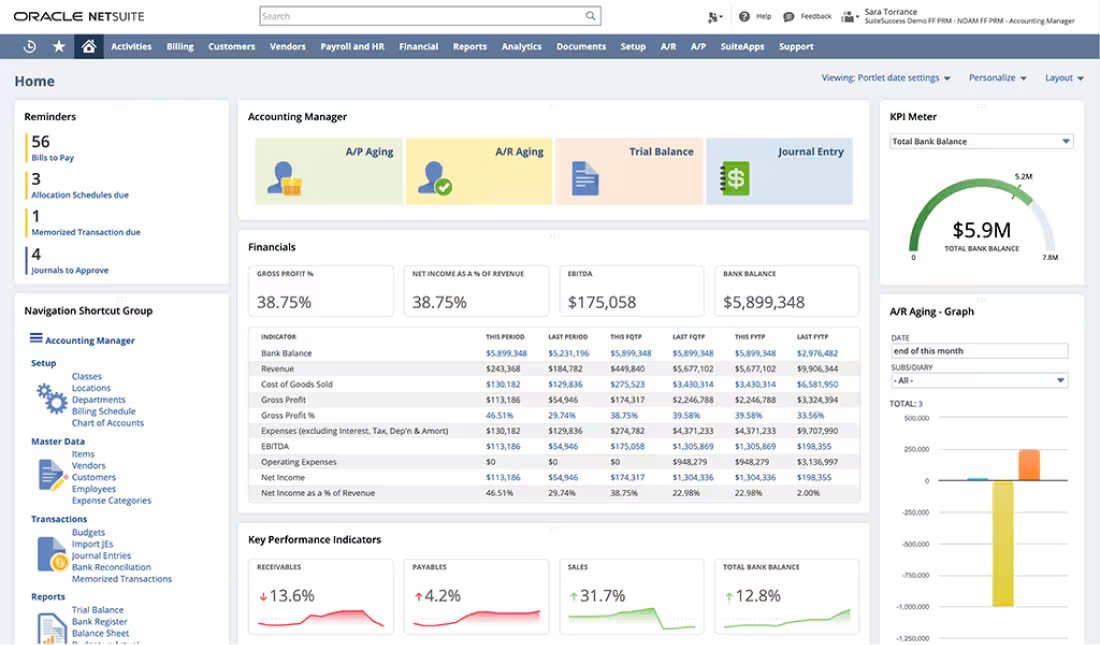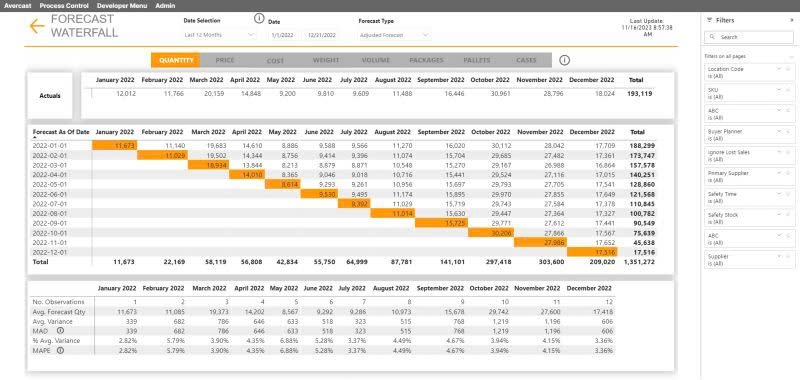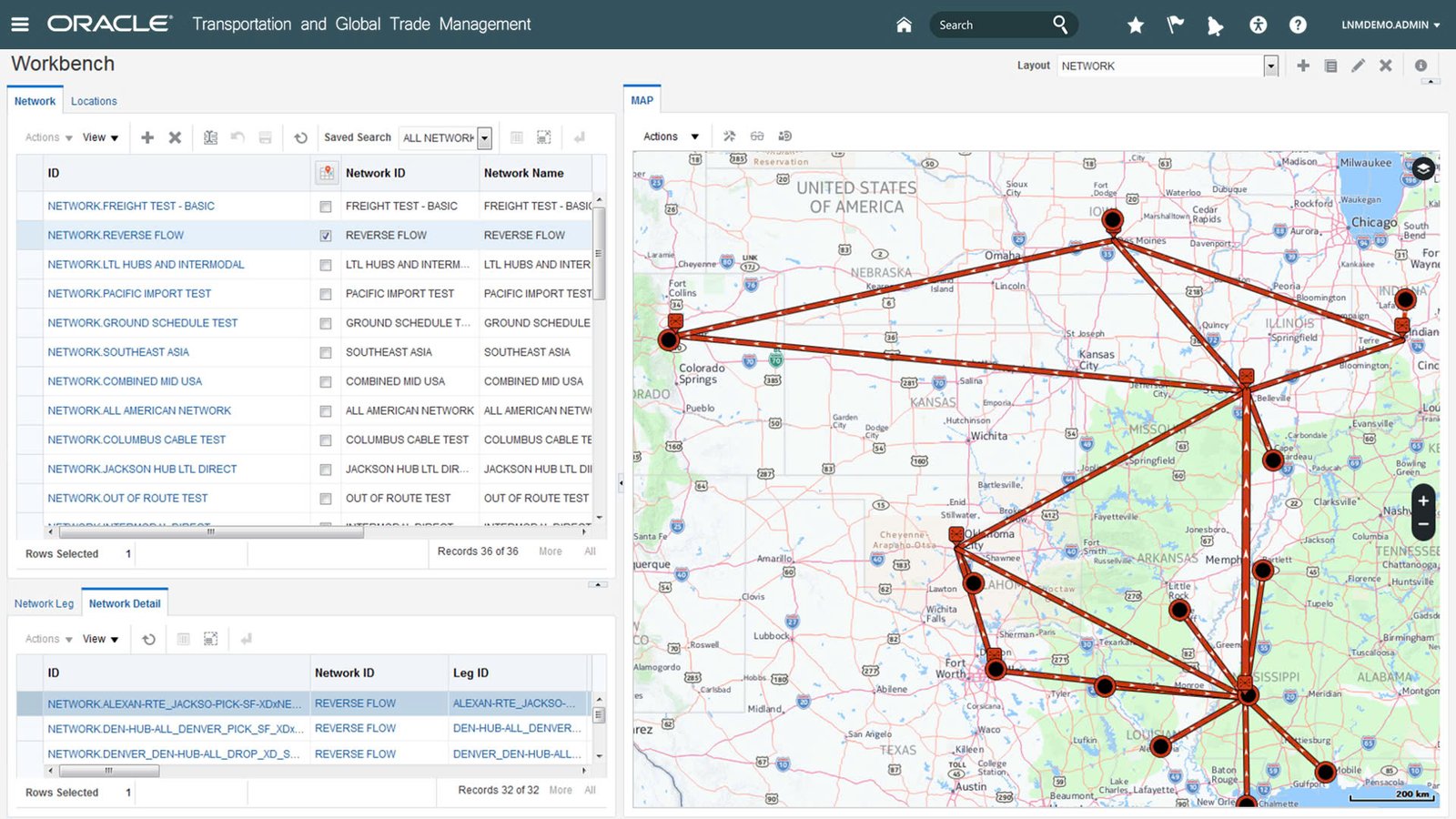Title: Essential Tools for Supply Chain Management: Streamlining Your Operations Introduction: In today's business landscape, efficient supply chain management has become paramount for businesses striving for greater efficiency. It is no longer just about moving goods from one place to another; it's about utilizing the right supply chain tools and software to streamline operations, enhance visibility, and drive cost savings. In this blog post, we will explore the essential tools that can transform your supply chain and keep your operations running smoothly. Why Supply Chain Tools Matter: As supply chains grow more complex, businesses require real-time data, faster decision-making capabilities, and seamless collaboration across multiple departments. This is where supply chain tools come in. They allow businesses to reduce costs, minimize errors, and adapt to market fluctuations more easily. Whether it's automating processes or forecasting demand, these tools offer significant advantages for businesses aiming to stay competitive. Types of Supply Chain Tools: 1. Inventory Management Tools: Efficiently managing inventory is critical to preventing stockouts or overstocking. Fishbowl and NetSuite are two popular inventory management tools that provide real-time stock level monitoring, allowing businesses to optimize reorder points and warehouse space. This not only saves costs but also ensures the availability of the right amount of stock.  2. Demand Forecasting Tools: Accurately predicting future demand helps businesses maintain optimal inventory levels and avoid waste. Tools like SAP Integrated Business Planning and Avercast utilize advanced algorithms to analyze historical data, seasonal trends, and market conditions. By using demand forecasting software, companies can anticipate customer needs and adjust their production schedules accordingly.  3. Procurement Software: Effective procurement is the backbone of any well-run supply chain. Software like SAP Ariba and Oracle Procurement Cloud streamlines supplier relationships, automates purchase orders, and manages vendor contracts. These tools not only ensure that businesses can secure the best prices but also reduce procurement cycle times. 4. Transportation Management Systems (TMS): Transportation costs typically form a significant portion of a company's budget. A robust Transportation Management System (TMS) can lead to massive savings. Systems like Oracle TMS and Kuebix help optimize shipping routes, manage carrier contracts, and monitor fuel costs. Enhancing logistics performance, this software ensures faster and more economical product deliveries.  5. Warehouse Management Systems (WMS): Precise coordination is essential for warehouse operations, from receiving goods to fulfilling orders. Warehouse Management Systems (WMS) like Manhattan WMS and HighJump help manage storage, picking, packing, and shipping. Implementing a WMS ensures accuracy, minimizes manual labor, and enhances order fulfillment speeds. Advanced Tools with AI and Automation: AI-driven supply chain tools, such as Llamasoft and ClearMetal, are reshaping the future of logistics and operations. These tools utilize predictive analytics to forecast demand patterns, optimize routes, and reduce bottlenecks. Automation, on the other hand, reduces human errors and increases operational speed. Automated warehousing systems, AI-driven demand forecasting, and smart procurement are becoming the new supply chain optimization standards. Key Benefits of Using Supply Chain Software: Investing in the right supply chain software offers several benefits: - Enhanced visibility: Real-time tracking of shipments, inventory, and costs across the entire supply chain. - Cost reduction: Automation and optimization tools help cut down on labor, fuel, and inventory costs. - Better coordination: Integrated platforms enable seamless collaboration among different departments, from procurement to logistics. - Improved customer satisfaction: Faster deliveries and fewer mistakes result in happier customers and better retention rates.  Choosing the Right Tool for Your Business: When selecting the best supply chain tool for your company, consider the following factors: - Business size: Opt for simple, cost-effective solutions for small businesses and robust, scalable software for larger enterprises. - Specific needs: Identify whether your business prioritizes inventory management, demand forecasting, or logistics to narrow down your requirements. - Budget: Strike a balance between a tool's capabilities and your budget. - Integration capabilities: Choose software that seamlessly integrates with your existing systems for smooth data flow between departments. Consulting supply chain experts can provide valuable insights into the tools that best suit your business's current and future needs. Conclusion: The right supply chain tools and software can significantly enhance operational efficiency, reduce costs, and provide better visibility into supply chain processes. In an increasingly globalized and complex supply chain landscape, leveraging these tools is essential for businesses looking to thrive. By investing in the right technology, you set your business up for success now and in the future. Read the original article here: [Essential Tools for Supply Chain Management: Streamlining Your Operations](https://eiindustrial.com/essential-tools-for-supply-chain-management-streamlining-your-operations/)
 Title: Essential Tools for Supply Chain Management: Streamlining Your Operations
Introduction:
In today's business landscape, efficient supply chain management has become paramount for businesses striving for greater efficiency. It is no longer just about moving goods from one place to another; it's about utilizing the right supply chain tools and software to streamline operations, enhance visibility, and drive cost savings. In this blog post, we will explore the essential tools that can transform your supply chain and keep your operations running smoothly.
Why Supply Chain Tools Matter:
As supply chains grow more complex, businesses require real-time data, faster decision-making capabilities, and seamless collaboration across multiple departments. This is where supply chain tools come in. They allow businesses to reduce costs, minimize errors, and adapt to market fluctuations more easily. Whether it's automating processes or forecasting demand, these tools offer significant advantages for businesses aiming to stay competitive.
Types of Supply Chain Tools:
1. Inventory Management Tools:
Efficiently managing inventory is critical to preventing stockouts or overstocking. Fishbowl and NetSuite are two popular inventory management tools that provide real-time stock level monitoring, allowing businesses to optimize reorder points and warehouse space. This not only saves costs but also ensures the availability of the right amount of stock.

2. Demand Forecasting Tools:
Accurately predicting future demand helps businesses maintain optimal inventory levels and avoid waste. Tools like SAP Integrated Business Planning and Avercast utilize advanced algorithms to analyze historical data, seasonal trends, and market conditions. By using demand forecasting software, companies can anticipate customer needs and adjust their production schedules accordingly.

3. Procurement Software:
Effective procurement is the backbone of any well-run supply chain. Software like SAP Ariba and Oracle Procurement Cloud streamlines supplier relationships, automates purchase orders, and manages vendor contracts. These tools not only ensure that businesses can secure the best prices but also reduce procurement cycle times.
4. Transportation Management Systems (TMS):
Transportation costs typically form a significant portion of a company's budget. A robust Transportation Management System (TMS) can lead to massive savings. Systems like Oracle TMS and Kuebix help optimize shipping routes, manage carrier contracts, and monitor fuel costs. Enhancing logistics performance, this software ensures faster and more economical product deliveries.

5. Warehouse Management Systems (WMS):
Precise coordination is essential for warehouse operations, from receiving goods to fulfilling orders. Warehouse Management Systems (WMS) like Manhattan WMS and HighJump help manage storage, picking, packing, and shipping. Implementing a WMS ensures accuracy, minimizes manual labor, and enhances order fulfillment speeds.
Advanced Tools with AI and Automation:
AI-driven supply chain tools, such as Llamasoft and ClearMetal, are reshaping the future of logistics and operations. These tools utilize predictive analytics to forecast demand patterns, optimize routes, and reduce bottlenecks. Automation, on the other hand, reduces human errors and increases operational speed. Automated warehousing systems, AI-driven demand forecasting, and smart procurement are becoming the new supply chain optimization standards.
Key Benefits of Using Supply Chain Software:
Investing in the right supply chain software offers several benefits:
- Enhanced visibility: Real-time tracking of shipments, inventory, and costs across the entire supply chain.
- Cost reduction: Automation and optimization tools help cut down on labor, fuel, and inventory costs.
- Better coordination: Integrated platforms enable seamless collaboration among different departments, from procurement to logistics.
- Improved customer satisfaction: Faster deliveries and fewer mistakes result in happier customers and better retention rates.

Choosing the Right Tool for Your Business:
When selecting the best supply chain tool for your company, consider the following factors:
- Business size: Opt for simple, cost-effective solutions for small businesses and robust, scalable software for larger enterprises.
- Specific needs: Identify whether your business prioritizes inventory management, demand forecasting, or logistics to narrow down your requirements.
- Budget: Strike a balance between a tool's capabilities and your budget.
- Integration capabilities: Choose software that seamlessly integrates with your existing systems for smooth data flow between departments.
Consulting supply chain experts can provide valuable insights into the tools that best suit your business's current and future needs.
Conclusion:
The right supply chain tools and software can significantly enhance operational efficiency, reduce costs, and provide better visibility into supply chain processes. In an increasingly globalized and complex supply chain landscape, leveraging these tools is essential for businesses looking to thrive. By investing in the right technology, you set your business up for success now and in the future.
Read the original article here: [Essential Tools for Supply Chain Management: Streamlining Your Operations](https://eiindustrial.com/essential-tools-for-supply-chain-management-streamlining-your-operations/)
Title: Essential Tools for Supply Chain Management: Streamlining Your Operations
Introduction:
In today's business landscape, efficient supply chain management has become paramount for businesses striving for greater efficiency. It is no longer just about moving goods from one place to another; it's about utilizing the right supply chain tools and software to streamline operations, enhance visibility, and drive cost savings. In this blog post, we will explore the essential tools that can transform your supply chain and keep your operations running smoothly.
Why Supply Chain Tools Matter:
As supply chains grow more complex, businesses require real-time data, faster decision-making capabilities, and seamless collaboration across multiple departments. This is where supply chain tools come in. They allow businesses to reduce costs, minimize errors, and adapt to market fluctuations more easily. Whether it's automating processes or forecasting demand, these tools offer significant advantages for businesses aiming to stay competitive.
Types of Supply Chain Tools:
1. Inventory Management Tools:
Efficiently managing inventory is critical to preventing stockouts or overstocking. Fishbowl and NetSuite are two popular inventory management tools that provide real-time stock level monitoring, allowing businesses to optimize reorder points and warehouse space. This not only saves costs but also ensures the availability of the right amount of stock.

2. Demand Forecasting Tools:
Accurately predicting future demand helps businesses maintain optimal inventory levels and avoid waste. Tools like SAP Integrated Business Planning and Avercast utilize advanced algorithms to analyze historical data, seasonal trends, and market conditions. By using demand forecasting software, companies can anticipate customer needs and adjust their production schedules accordingly.

3. Procurement Software:
Effective procurement is the backbone of any well-run supply chain. Software like SAP Ariba and Oracle Procurement Cloud streamlines supplier relationships, automates purchase orders, and manages vendor contracts. These tools not only ensure that businesses can secure the best prices but also reduce procurement cycle times.
4. Transportation Management Systems (TMS):
Transportation costs typically form a significant portion of a company's budget. A robust Transportation Management System (TMS) can lead to massive savings. Systems like Oracle TMS and Kuebix help optimize shipping routes, manage carrier contracts, and monitor fuel costs. Enhancing logistics performance, this software ensures faster and more economical product deliveries.

5. Warehouse Management Systems (WMS):
Precise coordination is essential for warehouse operations, from receiving goods to fulfilling orders. Warehouse Management Systems (WMS) like Manhattan WMS and HighJump help manage storage, picking, packing, and shipping. Implementing a WMS ensures accuracy, minimizes manual labor, and enhances order fulfillment speeds.
Advanced Tools with AI and Automation:
AI-driven supply chain tools, such as Llamasoft and ClearMetal, are reshaping the future of logistics and operations. These tools utilize predictive analytics to forecast demand patterns, optimize routes, and reduce bottlenecks. Automation, on the other hand, reduces human errors and increases operational speed. Automated warehousing systems, AI-driven demand forecasting, and smart procurement are becoming the new supply chain optimization standards.
Key Benefits of Using Supply Chain Software:
Investing in the right supply chain software offers several benefits:
- Enhanced visibility: Real-time tracking of shipments, inventory, and costs across the entire supply chain.
- Cost reduction: Automation and optimization tools help cut down on labor, fuel, and inventory costs.
- Better coordination: Integrated platforms enable seamless collaboration among different departments, from procurement to logistics.
- Improved customer satisfaction: Faster deliveries and fewer mistakes result in happier customers and better retention rates.

Choosing the Right Tool for Your Business:
When selecting the best supply chain tool for your company, consider the following factors:
- Business size: Opt for simple, cost-effective solutions for small businesses and robust, scalable software for larger enterprises.
- Specific needs: Identify whether your business prioritizes inventory management, demand forecasting, or logistics to narrow down your requirements.
- Budget: Strike a balance between a tool's capabilities and your budget.
- Integration capabilities: Choose software that seamlessly integrates with your existing systems for smooth data flow between departments.
Consulting supply chain experts can provide valuable insights into the tools that best suit your business's current and future needs.
Conclusion:
The right supply chain tools and software can significantly enhance operational efficiency, reduce costs, and provide better visibility into supply chain processes. In an increasingly globalized and complex supply chain landscape, leveraging these tools is essential for businesses looking to thrive. By investing in the right technology, you set your business up for success now and in the future.
Read the original article here: [Essential Tools for Supply Chain Management: Streamlining Your Operations](https://eiindustrial.com/essential-tools-for-supply-chain-management-streamlining-your-operations/)
Nhận xét
Đăng nhận xét